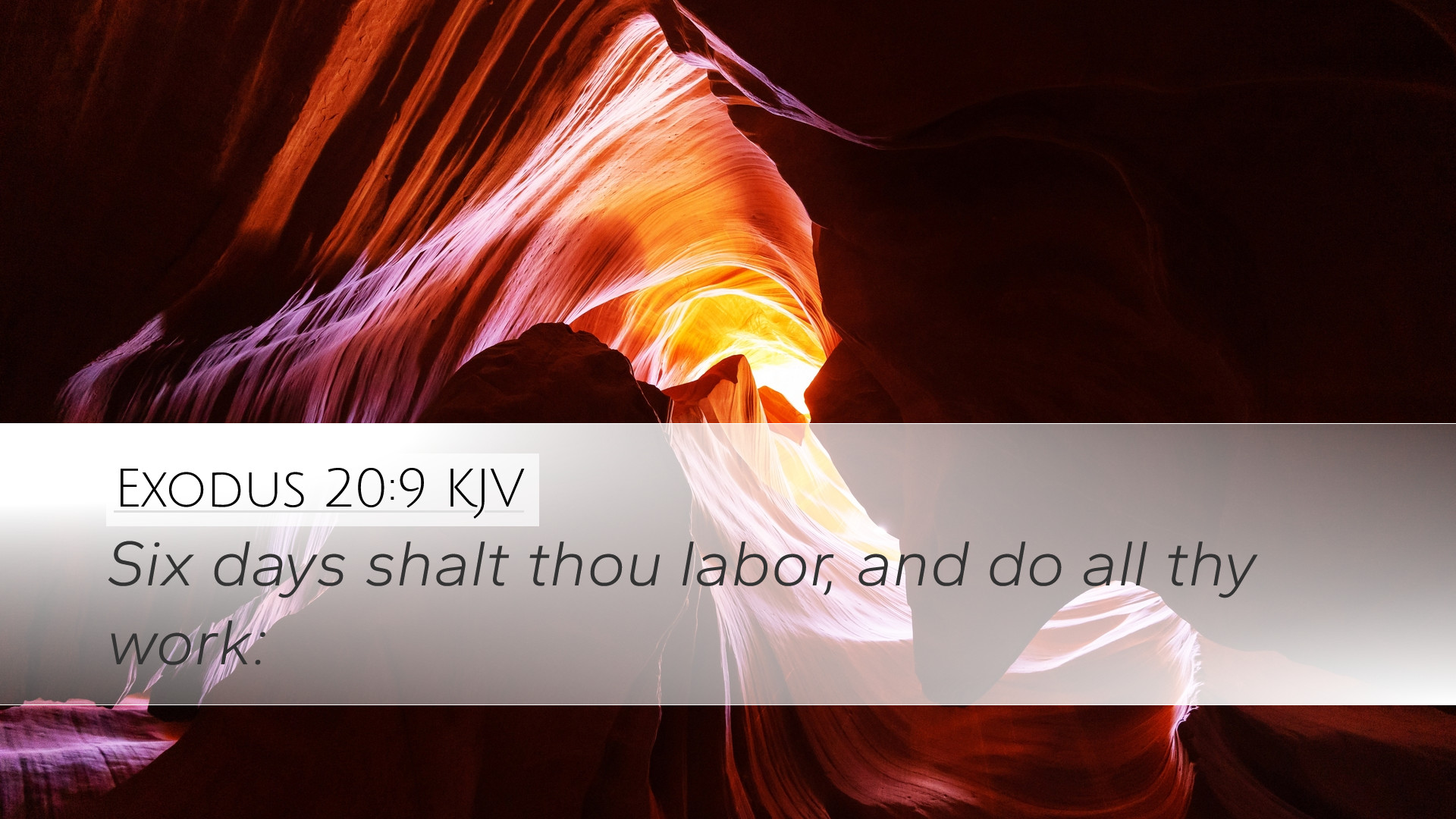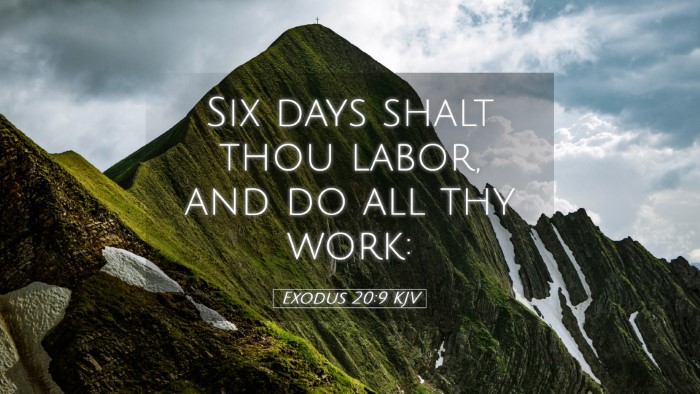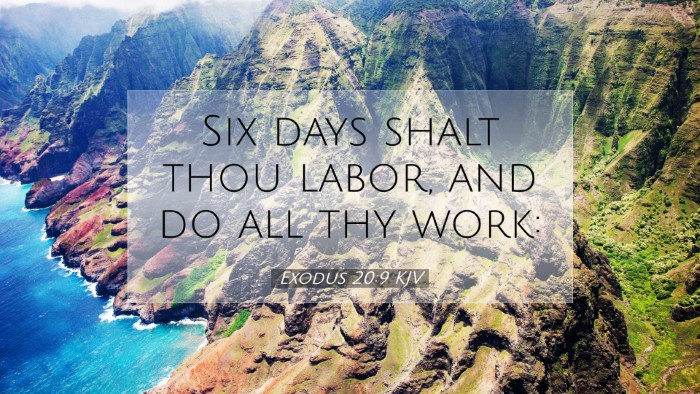Commentary on Exodus 20:9
Verse Overview: Exodus 20:9 states, "Six days you shall labor and do all your work." This commandment is part of the Decalogue, focusing on the rhythm of work and rest, which is foundational in the biblical narrative.
General Context
This commandment is situated within a broader framework of God's law given to Israel. The Ten Commandments encapsulate moral teachings and societal principles that are vital for communal living and spiritual fidelity. Understanding this commandment requires an appreciation of the creation narrative, particularly the pattern of work established by God in Genesis.
Insights from Commentaries
Matthew Henry
Matthew Henry emphasizes the divine ordination of work, positing that labor is not a curse but a part of God's good design. He suggests that work reflects God's creative activity. In his commentary, he categorizes work into both secular and sacred, highlighting the importance of dedication to all forms of labor as a form of worship.
Moreover, Henry notes the necessity of a balanced life, where work is juxtaposed with rest. He implies that neglecting this rhythm could lead to spiritual and physical exhaustion, neglecting the example set forth in God's own rest on the seventh day.
Albert Barnes
Albert Barnes provides practical insights regarding the socio-economic implications of this commandment. He asserts that this directive mandates a comprehensive understanding of work that enhances personal integrity and societal contribution. Barnes elucidates that the command to "do all your work" invites individuals to undertake responsibilities with diligence and application.
Furthermore, he elaborates on the significance of time management, asserting that the commandment encourages efficiency and productivity within the established six-day framework. This discipline, according to Barnes, not only serves personal benefit but also builds a collective ethos within communities.
Adam Clarke
Adam Clarke presents a nuanced interpretation of the command, linking the historical context of ancient Israel's agrarian society to the imperative of work. He notes that this commandment was particularly relevant to an agricultural people, where the six-day work cycle aligned with seasonal rhythms vital for survival.
Clarke also comments on the spiritual implications of labor. He affirms that work can serve as a form of stewardship, where individuals contribute to the world God has created. He emphasizes the sacredness of labor, teaching that work can be an act of worship and submission to God's plan.
Theological Implications
The command to labor for six days resonates with several theological themes:
- Creation and Imago Dei: Humans are made in the image of God, who worked to create the universe. Work is thus a reflection of God's nature.
- Order and Structure: The command imposes structure, encouraging believers to live disciplined lives, which is vital for flourishing.
- Work as Worship: All work can be performed unto God, assigning spiritual significance to every task undertaken.
- Rest and Reflection: The juxtaposition of work with rest (to be elaborated in the following verse) invites believers to reflect on their dependence on God.
Application for Pastors and Theologians
This commandment challenges the contemporary church to instill a view of work that counters prevalent attitudes of consumerism and entitlement. Pastors can advocate for a theology of work that emphasizes participation, stewardship, and the holistic integration of faith in all aspects of life.
Furthermore, church leaders should remind congregants of the dignity of labor and its infinite value, transcending mere productivity. Emphasizing the Sabbath rest can balance the understanding of this commandment, offering rest as an integral part of God's design for human flourishing.
Conclusion
Exodus 20:9 calls for a reevaluation of the perception of work within Christian life. This commandment is not just about labor but invites believers into a deeper relationship with God through their daily activities. It encourages a disciplined approach to life while reflecting God’s glory through our engagements and responsibilities.


